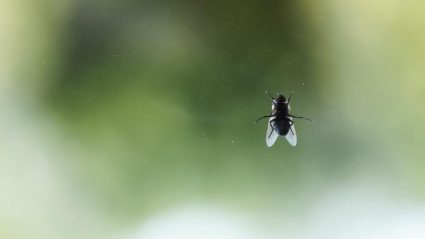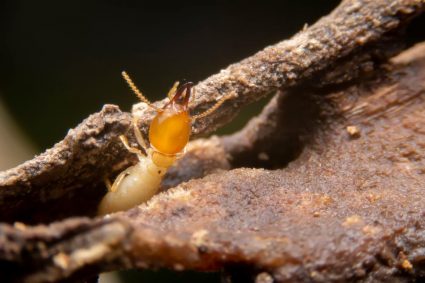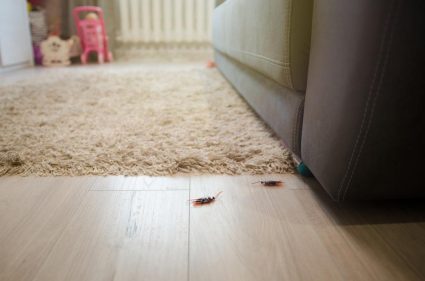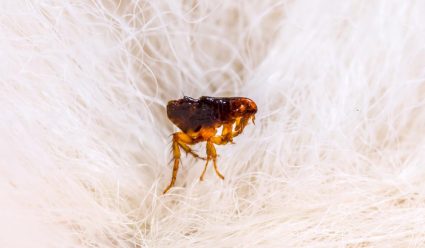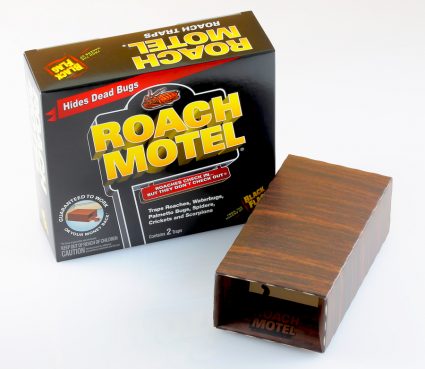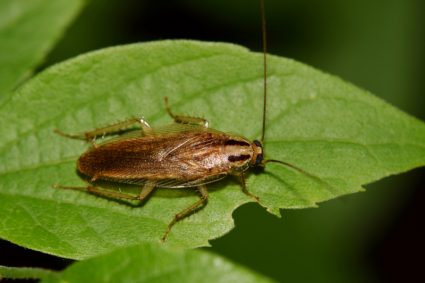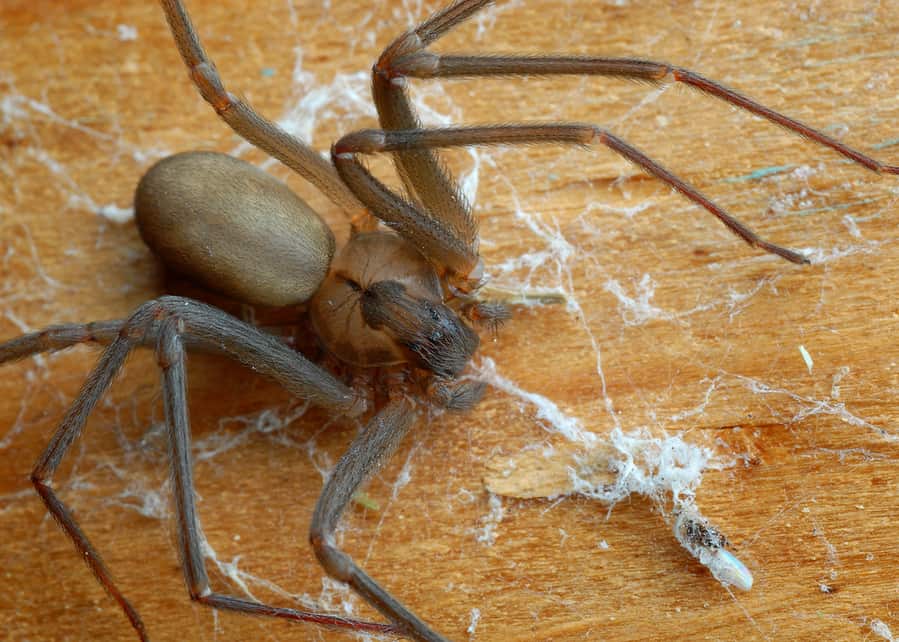
Even though spiders are one of the most common pests found inside our homes, I have yet to meet a person who failed to flinch when sighting a spider at first glance.
It can be a great source of anxiety for most of us who have to deal with the co-existence of spiders in our personal space. In addition, the knowledge that spiders have nearly 50,000 known species makes our fear more prevalent.
Spiders may
According to a study published in the British Ecological Society’s journal Functional Ecology, researchers have discovered that most spiders are even afraid of each other.
The fact that some spiders have arachnophobia makes accepting our reaction toward the species easier. This makes our anxiety and repulsion towards spiders slightly more justified, considering they are even afraid of their own.
Spiders have a purpose for being around, but if spider sighting in your home gets too common for comfort, you can get rid of them in several ways.
- There are two ways to get rid of spiders. You can either repel them or exterminate them from your house.
- Spiders are pretty important in keeping a low count of other insects inside your house. However, all facts considered, you should only proceed to exterminate if you have exhausted all other efforts to keep them away from your house.
- Depending on the spider’s requirements and species, exterminators use various methods, including trapping, physical removal, vacuuming, and chemical treatment.
- Pesticides can be dangerous because of their level of toxicity and ought to be handled only by someone with an understanding and awareness of the potential risks involved.
After reading the article, you will understand the methods used by exterminators in removing spiders and the potential risk to you and the environment.
Whether you are afraid, your premises are at risk of getting further infested by spiders or just curious to build knowledge on how to combat spider infestation if the problem develops in the future, be sure to read on to learn what methods exterminators use to get rid of spiders.
This article talks about the various ways exterminators make your home spider-free.
Different Ways To Get Rid of Spiders
Spiders are not aggressive or social by nature. They are exceptional at hiding or camouflaging since, believe it or not; they want to be left alone too. If you spot spiders inside your home, chances are, their existence in your space has progressed to an infestation.
First, you need to understand whether the spider is causing any harm. Removing them from your property may lead to other issues. For example, you may have to deal with other insects previously dealt with by spiders as their food.
If spiders are causing concern, there are two ways to get rid of spiders from your house.
1. Repelling
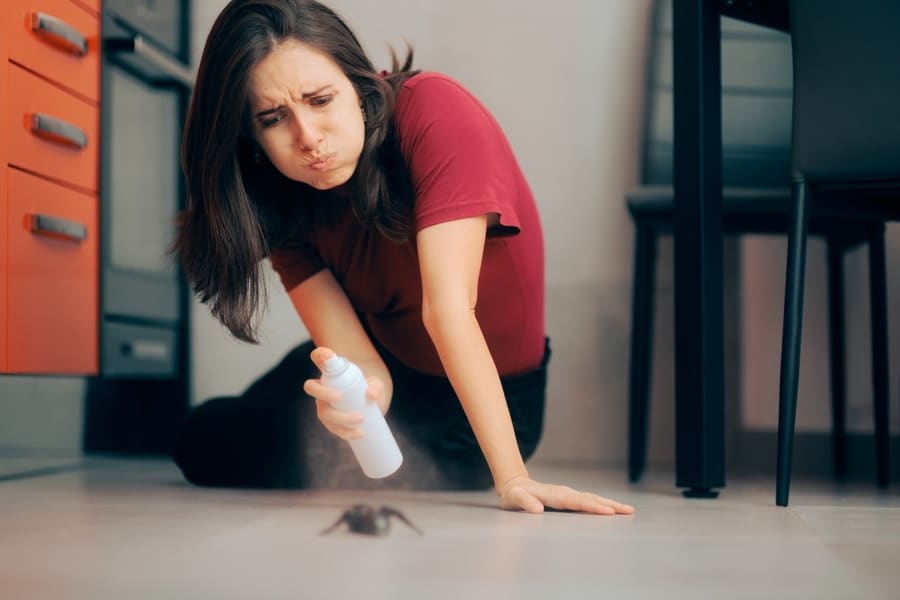
It involves tactics that make the spider avoid your space and keep it far away.
2. Exterminating
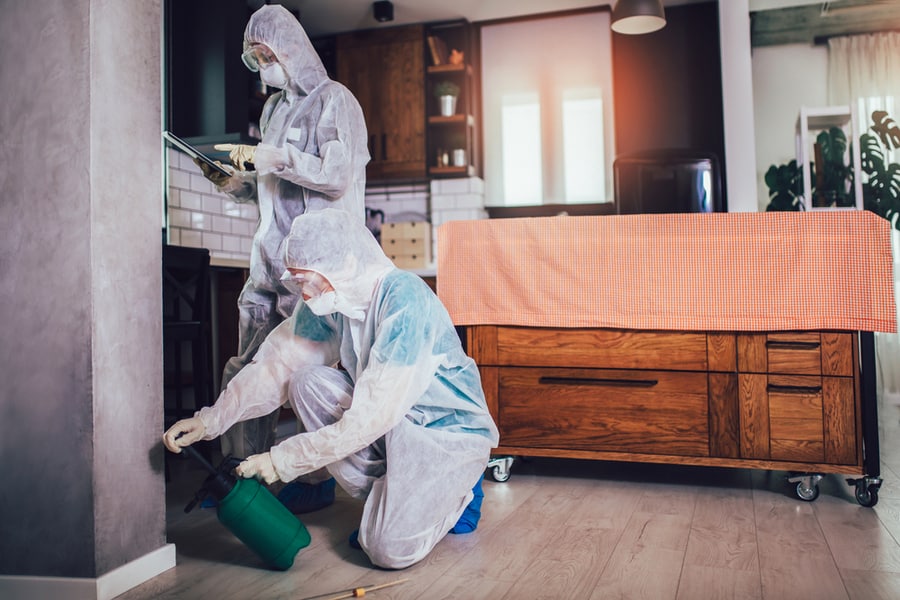
It involves using methods that eliminate spiders from your home by killing them.
Both methods allow you to get rid of spiders. The difference is in the speed of obtaining results. Repelling strategy is more of a passive approach to fixing the problem, whereas extermination is when you need more immediate results.
When Should I Resort to Exterminating Spider
According to a leading Arachnid scientist, Norman Platnick, at the American Museum of Natural History, if spiders disappeared, we would have to face famine. That being said, there are situations when we are left with no other option but to pursue extermination.
There are many different kinds of spiders found inside our living spaces. Some species of spiders have venomous bites that may lead to mild to severe allergic reactions.
Even if the spider is non-venomous, it can invoke anxiety, fear, and stress and may cause sleepless nights. Under such circumstances, you must take the bull by the horns and address the issue.
A professional exterminator may use various methods to achieve a spider-free space.
Methods Used by Exterminators
Exterminators typically make use of chemical pesticides to control the spider population. Then, after careful evaluation, the exterminator will execute one or a combination of the following ways to eliminate spider infestation from home.
1. Trapping
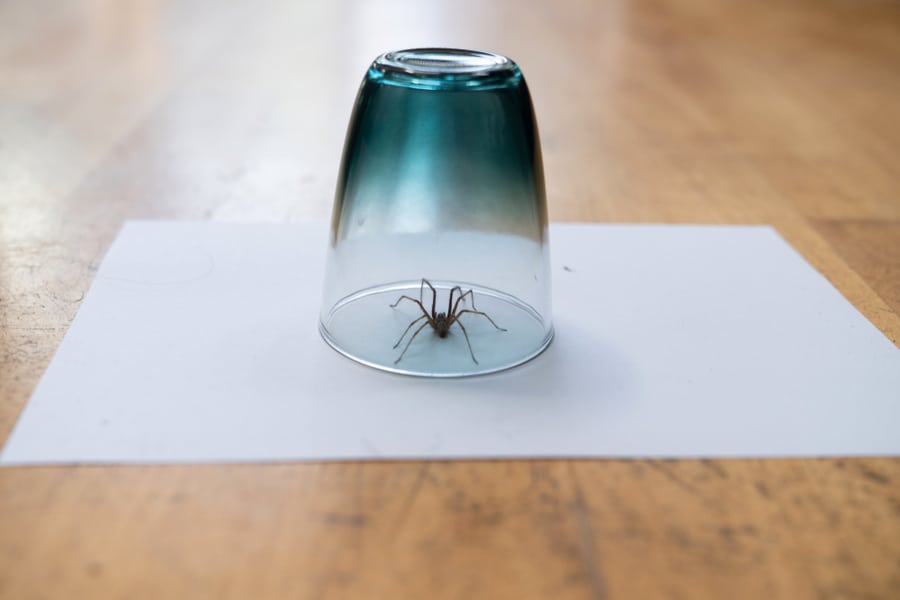
After carefully surveying the premises, the exterminator may strategically place sticky traps to capture spiders.
2. Physical Removal
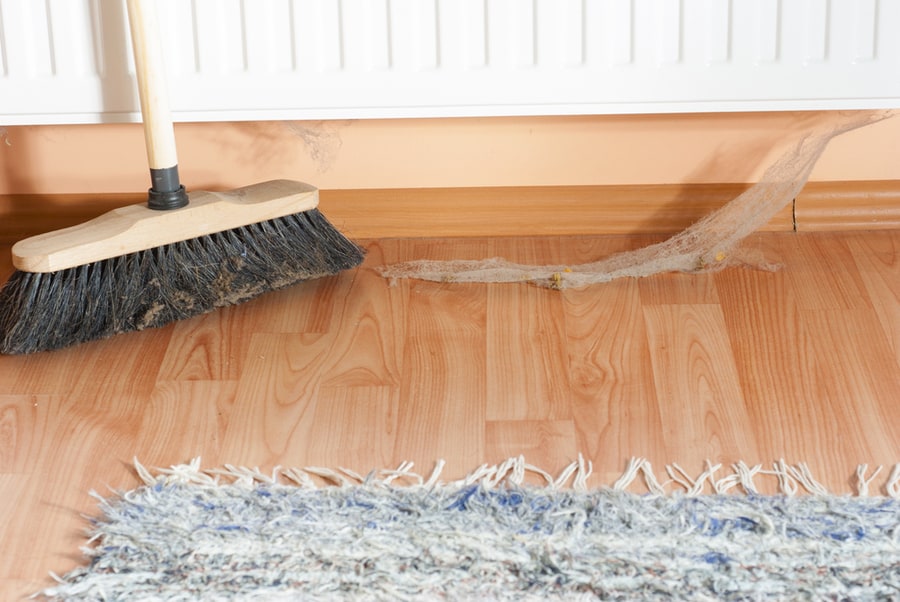
Depending on the type of spider problem, an exterminator may use tools like a dustpan and a broom to remove the spider physically. It may involve dousing the spider with a chemical to daze it first and stop it from making a quick exit.
3. Vacuuming

An exterminator may use a vacuum cleaner to remove all the webs and egg sacs from hard-to-reach spots in the ceiling, high and low corners, and crevices.
4. Chemical Treatments
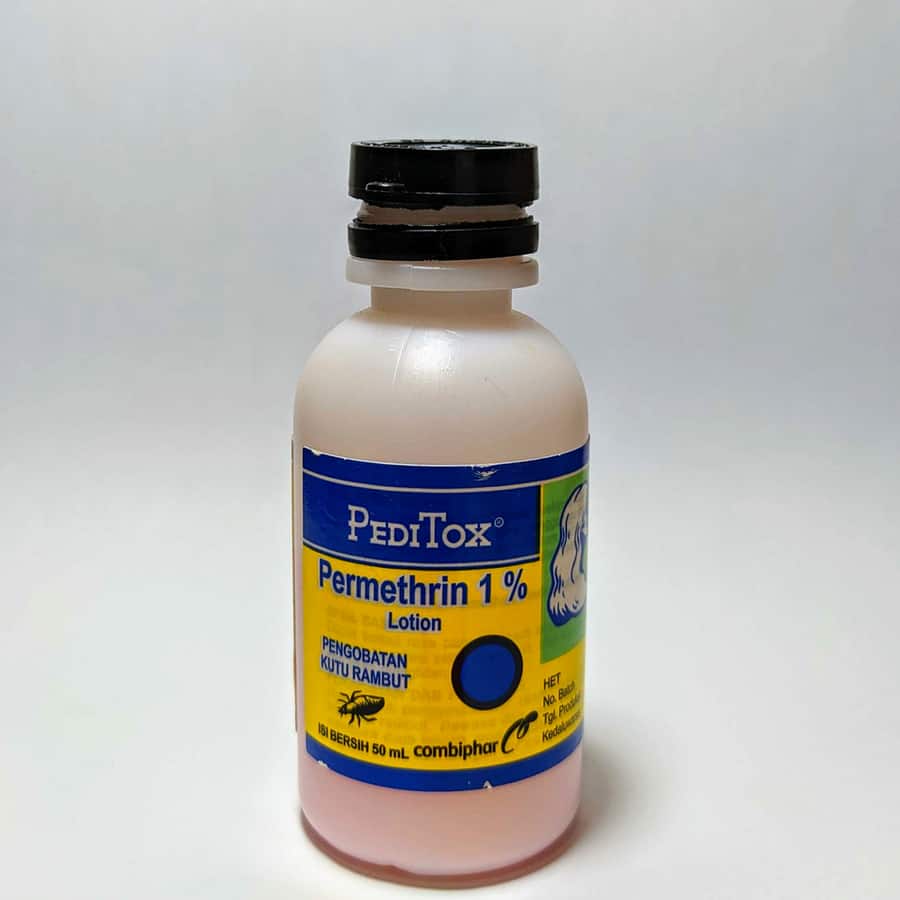
This is the most tricky part of the extermination process, which requires some knowledge of the chemicals used in intensity, relevance, and derived contents. Here is a list of the most potent pesticides used by exterminators to control the spider population.
Always check the label for contents and instructions before using the product.
A. Acetamiprid
This toxic pesticide belongs to a class of synthetic chemicals similar to nicotine. It is a broad-spectrum insecticidal treatment to combat a variety of insects.
B. Carbamate
This chemical is used in the form of spray or dust. It works by affecting the brain and the nervous system of the spider when sprayed or dusted on.
Skin contact with carbamate causes a minor rash. Prolonged exposure may result in more severe symptoms that include nausea. Caution is advised.
C. Permethrin
This is used in the form of dust, spray, and foggers. It is a pyrethroid insecticide that is found naturally in chrysanthemums. It is a relatively non-toxic to moderately toxic pesticide, depending on the amount used.
D. Pyrethrins
This is used in dust, foggers, and aerosol sprays. Since it is a natural insecticide derived from chrysanthemums, it poses low toxicity to mammals while having a potent effect on spiders.
E. Organophosphates
Like carbamate, this pesticide affects the spider’s nervous system. It is used as a form of spray or dust. There are various kinds of organophosphates available, like diazinon and chlorpyrifos.
If you are unsure of the chemicals needed or the frequency of application required for the task, it is best to get in touch with a professional exterminator.
Excessive amounts of pesticides can be detrimental to humans and the environment.
If this is your first time using chemicals, follow an exterminator’s recommended method or engage their services.
A professional exterminator will be able to assess the situation most accurately and recommend the most effective course of action depending on the spider species and the infestation level.
It is always recommended to ensure the area is evacuated and the edibles are safely stowed away before initiating the treatment. It is also important to check and confirm whether the chemical content in the treatment does not stand to cause an allergic reaction.
The residual amount after a chemical treatment may also pose a serious threat to someone sensitive to allergies.
Conclusion
Spider population can be controlled in several ways depending on the severity of the situation. For example, if you exterminate the entire spider population from your house, you may have to deal with other insects cropping up in your house the spider used to feed on.
The usage of chemicals should be dealt with with extreme caution. Pesticides can turn quite toxic if the usage is not limited to the right quantity, hence should be handled by a licensed professional.
It is always recommended to keep spiders from infesting your home by adopting preventive measures that include installing door sweeps, and screens, frequently dusting walls to remove webs and egg sacs or using non-toxic natural ingredients like essential oils or vinegar to repel spiders.
Frequently Asked Questions
Can Our World Survive Without Spiders?
Spiders are important for the functioning of our ecosystem. However, they mostly live off eating other insects.
Spiders are known to feast on some of the world’s deadliest insects, keeping their count under control. Without spiders, the human race is at risk of an inevitable famine.
Can Spiders Come Through the Drains and Plumbing?
Spiders cannot come through plumbing or drains. It is a myth because spiders often need rescuing from a basin with little residual water.
They might be found next to water because they live in an environment devoid of water and only come down a wall to quench their thirst.
Also, modern-day drains have a liquid-filled sediment trap through which spiders cannot pass or penetrate even if they try.




